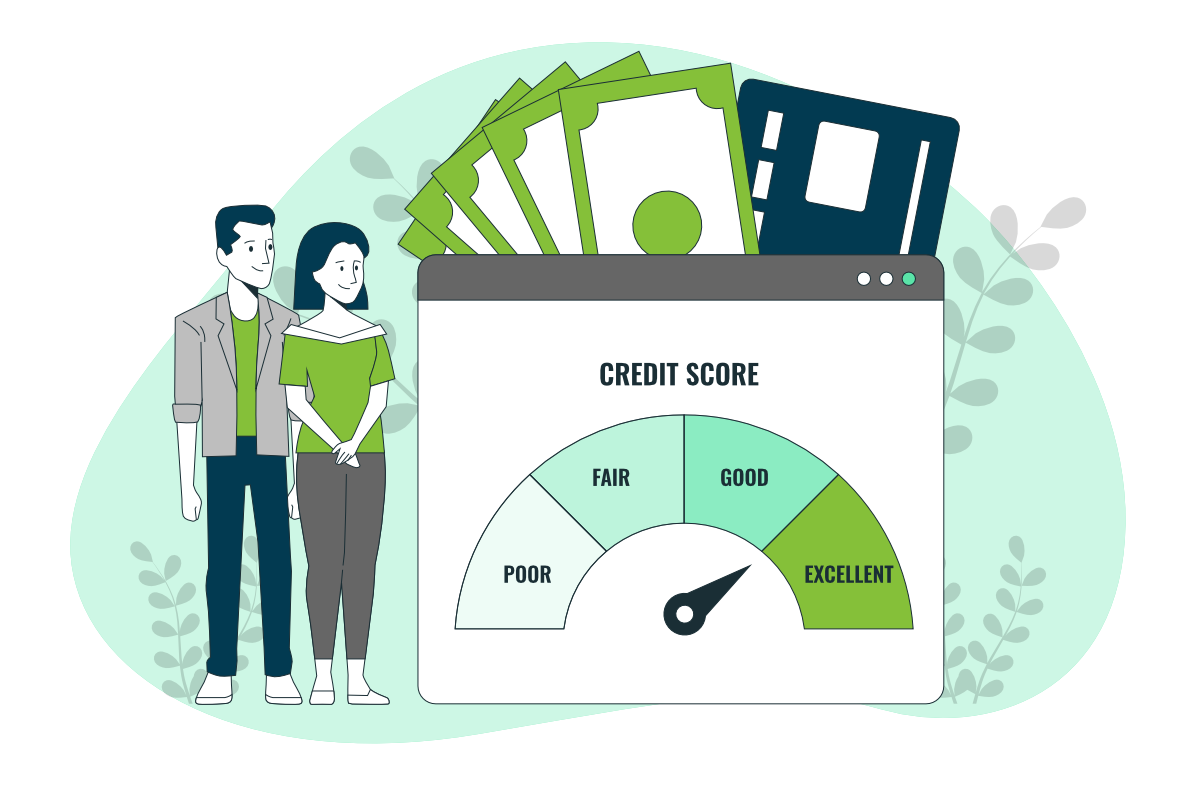Having no credit history can keep you away from borrowing a loan. Whereas having a good credit score makes it easy for you to get a loan, what to do if you don’t have a credit score yet? Building a credit score from scratch can be very difficult. And if you apply for a loan with no credit score, there are high chances that you may not get a loan or even be charged with high-interest rates.
However, here are a few ways to help you build your credit score from scratch, especially when you don’t have a Credit History, a Credit Card, or Loan Account, to back your application.
HOW CAN YOU BUILD YOUR CREDIT SCORE FROM THE BEGINNING:
1. A new pre-paid card
Credit cards are an essential financial tool that helps its holders make additional purchases without fearing insufficient money as it gives you the luxury of paying back the amount later.
Credit cards come with an approved credit limit that can be utilized by the holder every month and can pay back the amount on the due date. The bank and the holder mutually decide the due date and is usually 40-45 days.
You can use these cards to make balance transfers and cash advances in various purchases. Remember that using a credit card requires maintaining a minimum payment to be made every month by the due date.
Besides this, it also helps you build a good credit score, but you can apply for one only if you have a credit history. Try using a credit card against a bank FD to begin your financial journey.
HOW DOES CREDIT CARD HELP BUILD A GOOD SCORE?
Make regular use of your Credit Card for transactions and pay your bills on time before each credit statement cycle. This will create a clean credit history of repayment.
The transaction report maintained by your bank will report this to the bureau, from where your credit score will be calculated based on this record.
Please make sure that you choose your first card with a low annual fee and payout your bills in time.
2. SECURED PERSONAL LOAN
Applying for a secured loan makes sense when you require cash urgently or are not eligible for a loan and do not have a good credit history.
A Secured Loan can be applied against any of your tangible assets such as Car, Gold, Home, Investments as well as deposits with your bank.
Your loan application is swiftly approved with collateral, even without a credit history. The details required for a secured loan include your proof of identity, address, and income proof to approve your loan application.
Make sure that you apply for a small cash loan for a short duration, build a credit score, and repay the amount conveniently. Your credit score will automatically boom up when you have successfully repaid the loan. You can apply for more loans and enjoy a low-interest rate with a better credit score.
3. EMI PURCHASING
Making a purchase on EMI from your debit card can also help create a good credit score in the case where you neither need a loan nor a Credit Card. Most FMCG products like TV, Electronics, Mobile, laptops are available at discounts and EMI plans.
You can choose an EMI plan for 6-18 months. The successful repayment done through this purchase will build a clean history of refund and credit score.
4. MAINTAINING GOOD FINANCIAL HABITS
Maintaining good financial habits by repaying your loan amount timely helps build your credit score and thus improves your likelihood for loan approval. A good credit score enables you to avoid unprecedented financial emergencies. You always have your credit limit as a backup for urgent cash needs.
Adopt some good financial habits, as below, to have a good credit history:
- Repay regularly: To keep a track of repayment dates of different loans, credit cards, and purchases made on EMI, try automating your monthly repayments. Repairing all your credits in time will boost your score and make you a creditworthy bank customer.
- Low Credit utilization: Do not utilize your credit limit entirely as it may cause a drop in your credit score. Make sure you keep your average Credit Utilisation Ratio below 30%-40%. A low credit utilization ratio is considered as a positive credit behavior. A red flag is generated on your CIBIL Report when you frequently use your credit card, preventing you from taking the loan.
- Keep debt-to-income ratio low:A 50% net take-home income ratio is considered suitable for keeping track of your credit history. It will not impact your day-to-day spending and ensure enough cash flow for your spendings. A high debt to income ratio makes you ineligible for a further loan until you repay all your loans and ease your credit limit.
- Balanced secured & unsecured loans: Having a good balance of secure & unsecured loans improves your credit history. Fast loans are offered against collaterals, have a lower interest rate, and are easier to qualify for. However, unsecured loans can create a red flag on your report and makes you ineligible for another bank product.
- Credit history period:Do not close your old credit card as it will always stand as the best proof of good credit behavior. It may also help you plan by borrowing a high amount.
Adopting a disciplined financial life is the key to building a good credit score from scratch. Credit products like personal loans, credit cards, secured loans, and EMI purchases can help create a good credit history within 6 – 12 months only if you make the repayments on time.




